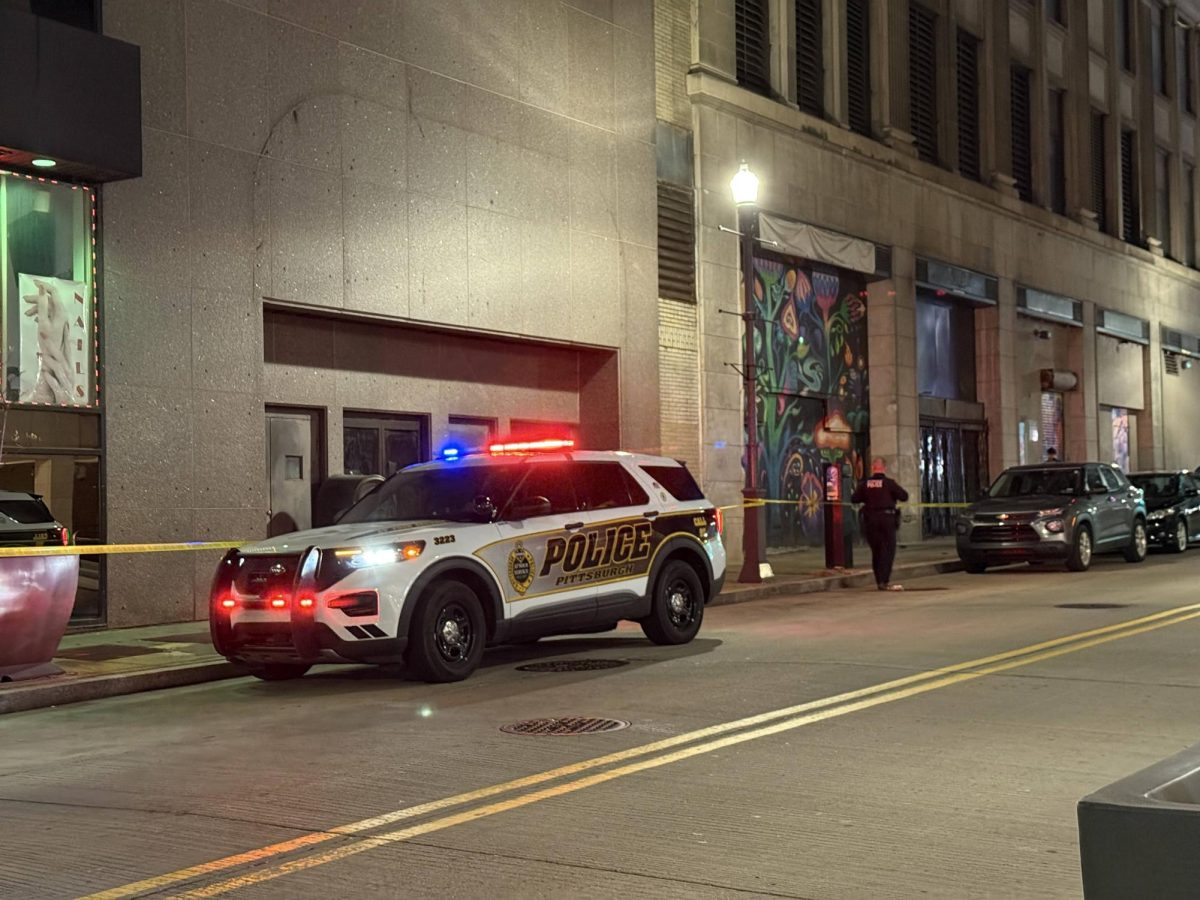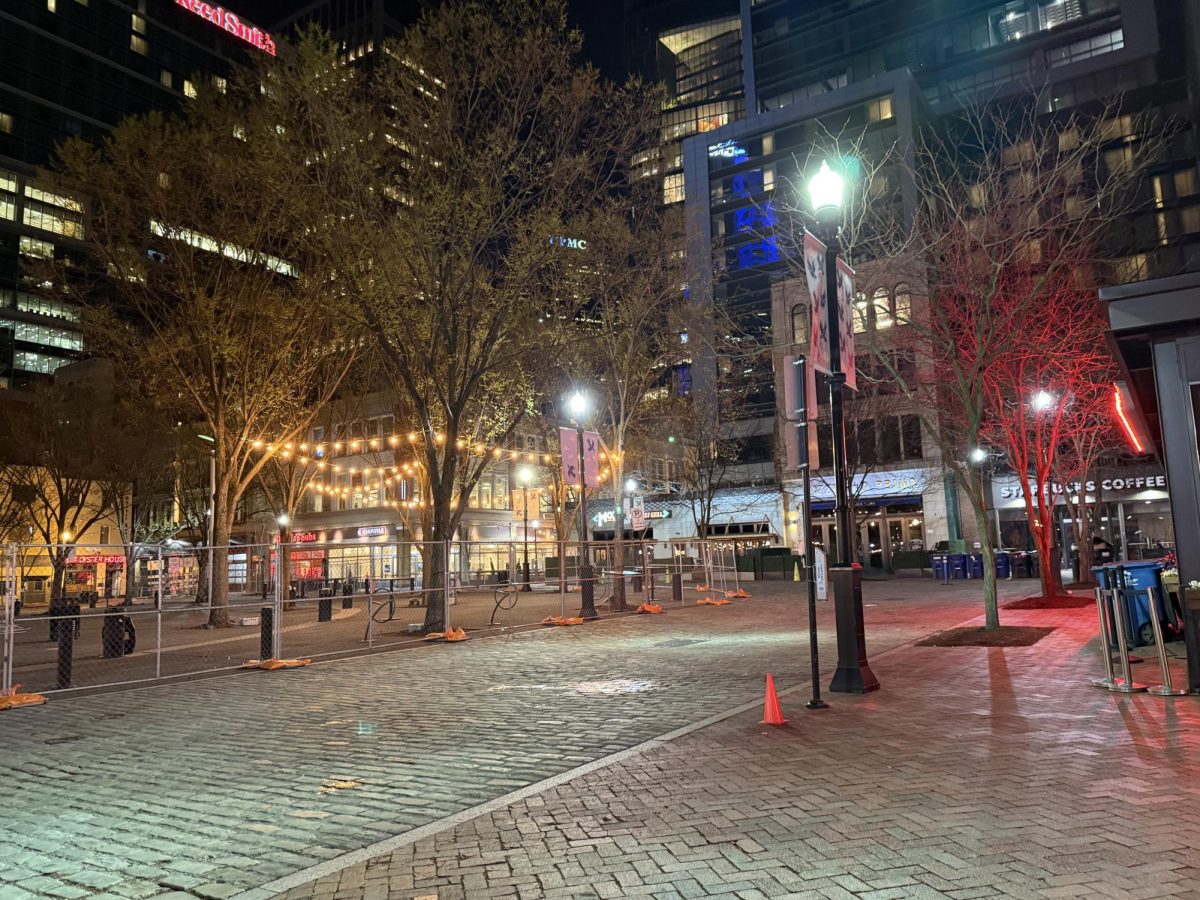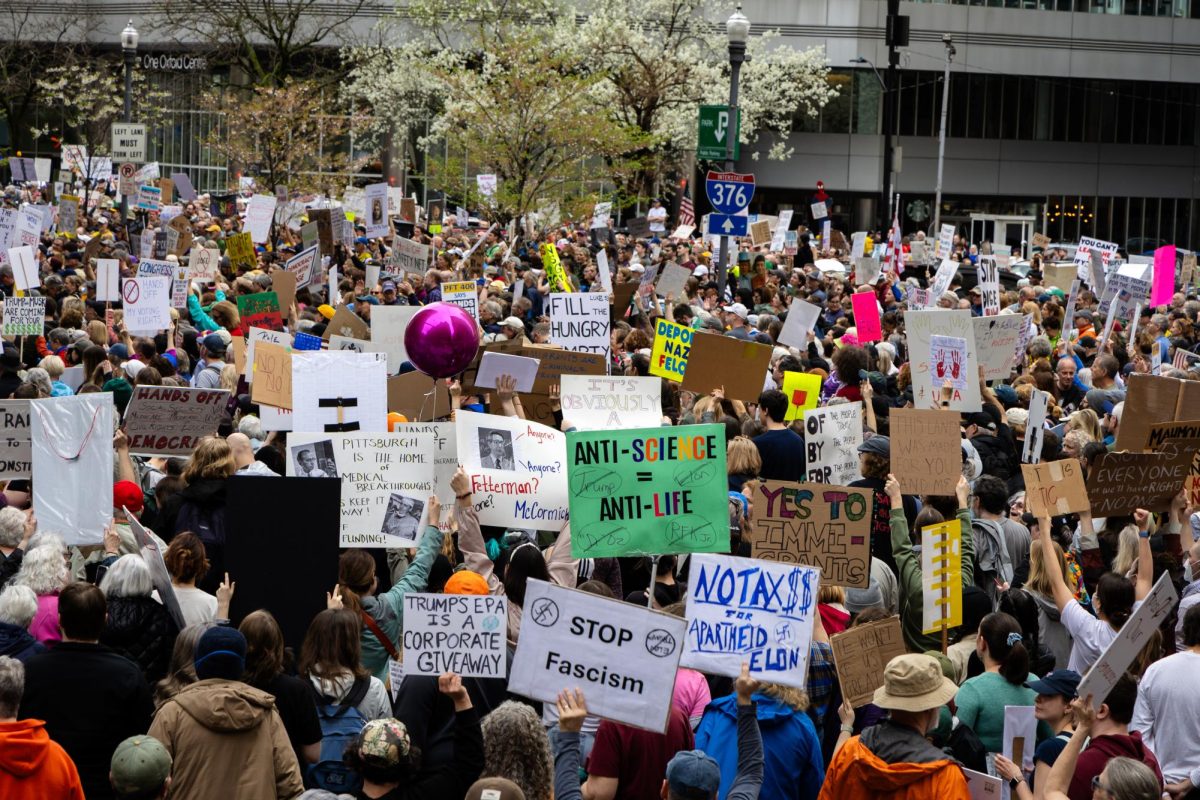
This spring semester, a new sign bearing the words “Safe Zone,” depicting a rainbow wave in front of the silhouetted Pittsburgh skyline is being displayed on various campus doorways.
Safe Zone is a new program on campus that offers support services specific to lesbian, gay, bisexual, transgender and gender queer (LGBTQ) concerns. Members of the campus community can access information and resources related to gender and sexuality from individuals who have received training in LGBTQ concerns and have volunteered to offer a judgment-free space and to serve as allies on campus.
“Safe Zone came out of my searching for a student club or gay-straight alliance that I could mentor as an advisor to and noticing that we didn’t really have any support services specific to LGBT students,“ said Point Park Assessment Coordinator, Lindsay Onufer, who serves as Safe Zone program coordinator.
After investigating through Staff Assembly last year, Onufer discovered that a number of proposals for LGBTQ student clubs had been made but none had been able to be sustained.
“I thought Safe Zone would be a good way to get faculty and staff involved without making students entirely responsible for sustaining the program,” Onufer said.
Onufer worked through Staff Assembly, teaming up with Director of Student Development, J.W. Tabacchi and Title IX Coordinator, Elizabeth Rosemeyer, on the Safe Zone proposal.
Part of the mission of Title IX is to ensure that the University prevents and responds to any sort of discrimination based on sex and gender identity.
“Within Title IX, Safe Zone is one more space where a person can be heard in a responsible and compassionate way,” Rosemeyer said in an interview at the campus Starbucks Friday morning.
Two groups of faculty, staff and students from Residence Life volunteered for Safe Zone training sessions conducted by education counselors from the PERSAD Center, a United Way agency organization that serves the LGBTQ community by offering resources in education, mental health counseling and advocacy among others.
The training sessions, which lasted for three hours, covered a general historical background of cultural attitudes, changes in laws and sensitivity training in the distinctions between gender identity and sexual orientation.
“Safe Zone volunteers do not provide mental health counseling services,” Tabacchi said during an interview in his office in the Student Center on Wednesday. “Students need a place where they can go if they are questioning their gender or sexuality and aren’t sure about the resources or aren’t sure about what on or off-campus resources are available.”
Charles Murria, a sophomore majoring in sports, arts, and entertainment management, realized he was bisexual when he was 14 years old. His friends at school and their parents were the first group of people who he shared this personal information with until he felt confident enough to tell his parents.
“It was a very confusing time for me, but I was lucky that I went to a school where I had teachers that I could talk to, and they were able to introduce me to other students who were questioning their sexual identity,” Murria said in an interview in the Student Center on Wednesday. “I think the Safe Zone program can be for students that may not have supportive friends or family – what my friends and teachers in high school were for me.”
Safe Zone training is open to any faculty or staff member who wants to participate and are available. Once the training is complete, individuals have the opportunity to become Safe Zone volunteers. Along with training, volunteers must sign a contract that outlines their duties and responsibilities, ensures confidentiality, and underscores the fact that they are not acting as mental health counselors.
“Even if students don’t utilize the program, they’re aware of that support as they walk around campus and see the Safe Zone signs,” said Onufer. “And should a student need support even if they are not an LGBTQ student, Safe Zone volunteers are there to point them towards resources that could help them.”
For more information about the Safe Zone program or to volunteer contact Lindsay Onufer at lonufer@pointpark.edu.







